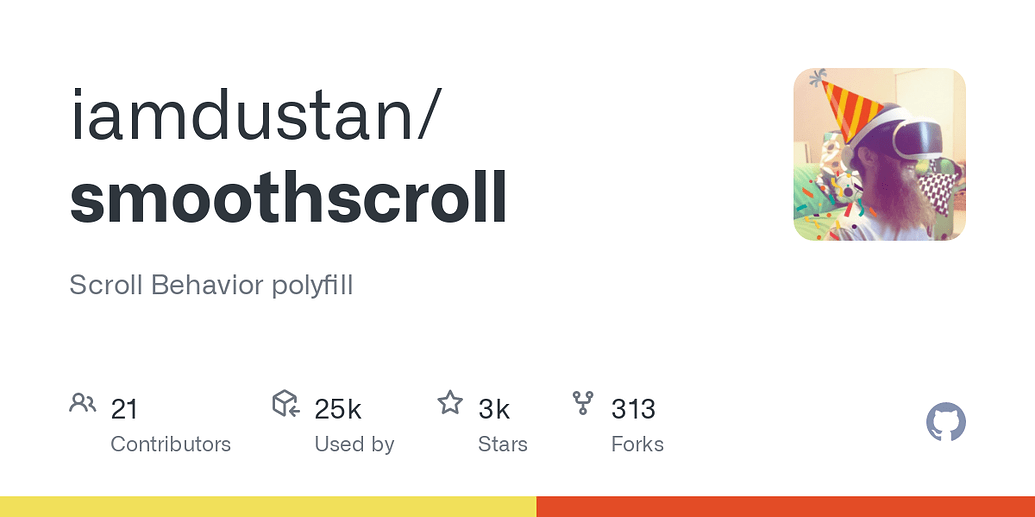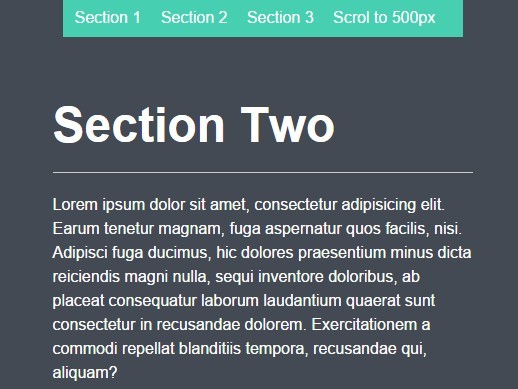


It’s been one of the most enjoyable things I’ve ever studied and the team do a fantastic job of making it first of all but also in the fantastic forums. “No other animation library is as intuitive, rigorous, conceptually simple and well curated as GreenSock’s.”.This the first time I feel this way about a library.” “Reading through the GreenSock docs been amazed like 14 times so far! How can a library be SO complete? Been using that for about 2 years now but man.“Without GSAP I would have ditched front-end dev the day Flash officially died.”.“GSAP IS the animation library and has been for years.Joseph Labrecque, “GSAP makes my job fun, because it allows me to focus on creating rich, engaging web experiences, while GSAP handles much of the implementation details behind the scenes.” “Really quite impressed with JS - even the small things.”.“GreenSock has encouraged me to play with the code, to dream up new and exciting things to do.”.

Smoothscroll safari code#
I made a PR to slightly improve the docs, you might find the code easier to understand with it. If you have more curiosity, I highly suggest studying the polyfill's source code, it's less than 500 lines in total. It does not support smooth scrolling by setting scrollLeft/ scrollTop and it does not support the scrollIntoView() options (it always aligns the element at the top). It polyfills scroll(), scrollTo(), scrollBy(), scrollIntoView() and the CSS scroll-behavior. I recently stumbled across a nifty little browser feature when I had to solve. If you need more reassurance, there's a very good smooth scroll polyfill that I use in my projects. JavaScript Tip: Smooth Scroll to an Element. scrollTo ( As of this writing, all major browsers – except Safari – support smooth scroll and the scrolling methods described in this article.

There's also a new signature for this method, which uses an object instead of two numeric arguments, and with this new signature, we can explicitly set our scroll behavior. You simply call element.scrollTo(x, y) and it'll respect the CSS scroll-behavior of the element. If you have the x and y coordinates for where you want to scroll the user to, you can simply call window.scrollTo(x, y) and it'll respect the CSS scroll-behavior of the page. For more complex cases, the SmoothScroll. This method is ideal for scrolling to absolute coordinates. Link Window.scrollTo() and Element.scrollTo() In practice, you can use either, just choose one and be consistent. To avoid duplicate content, I'll just refer to scrollTo(). That's because Window.scroll() and Element.scroll() are effectively the same methods as Window.scrollTo() and Element.scrollTo(). Specifies the number of pixels along the X axis to scroll the window or element. Specifies the number of pixels along the Y axis to scroll the window or element. A dictionary containing the following parameters: top. This review is about, which provides the SmoothScroll plugin for Chrome and related apps. Maybe you've noticed that I haven't mentioned the scroll() method. y-coord is the pixel along the vertical axis of the document that you want displayed in the upper left. Link (Note) Window.scroll() and Element.scroll() We'll explore these methods individually. Ğlement.scrollTop = y JavaScript - Window. Some ways of programmatically triggering a scroll event are through: - Window.scrollTo() I say "programmatically triggered" because it's not going to smooth scroll the mouse wheel.


 0 kommentar(er)
0 kommentar(er)
